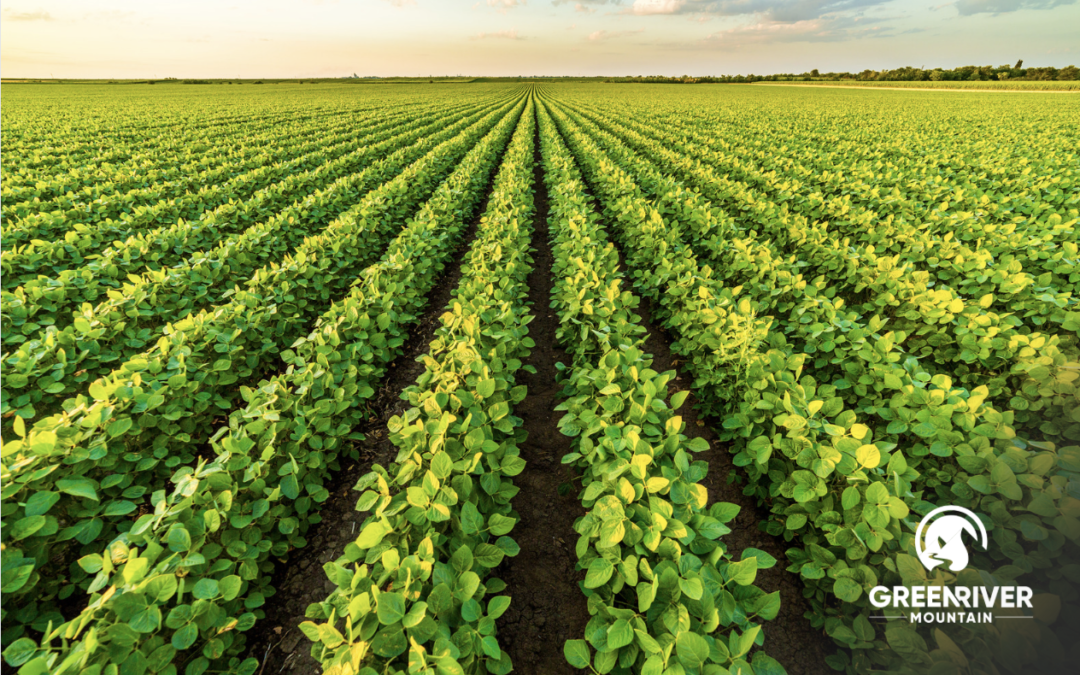What is the Attraction to Farmland?
Farmland is an alternative asset that has a sustainable upside. In today’s turbulent economic landscape, characterized by stubbornly high inflation rates and stock market volatility, investors are actively seeking alternative investment opportunities to diversify their portfolios and secure returns that can outperform traditional asset classes. The lingering supply-chain disruptions stemming from the pandemic, surging demand, and skyrocketing commodity prices have created an environment where stability is paramount. As the U.S. Federal Reserve continues to raise interest rates to address inflation concerns, (currently at 5.5% and increasing as at October 2023), uncertainty looms over the global economy’s future trajectory.
Amid this uncertainty, ultra high-net-worth individuals (UHNWIs) are turning their attention to farmland investments as a dependable means of preserving wealth and hedging against inflation. There are compelling reasons why affluent investors consistently choose to incorporate farmland into their investment portfolios.
Farmland: An Inflation-Beating Investment
For those who closely follow financial markets, the concept of inflation hedging through assets like farmland and agriculture is nothing new. Unlike many other asset classes that often face devaluation during inflationary periods, real assets such as land have a reputation for retaining their value, even as the purchasing power of currency declines. In fact, data from the NCREIF Farmland Index indicates that the value of U.S. farmland owned by investors surged by 10.2% in 2022, surpassing the average inflation rate of 8% for the same period. This robust performance underscores the close correlation between rising inflation and appreciating farmland values, as illustrated by a correlation coefficient of 0.97 (out of 1.00) from 2020 to 2022 when compared to the Consumer Price Index (CPI), a widely used inflation metric.
Moreover, farmland has displayed remarkable resilience in the face of inflation, outperforming various other asset classes during periods of elevated inflation. This resilience makes farmland a highly attractive asset for capital preservation, surpassing even private real estate in its ability to safeguard wealth during times of rising inflation.
The Allure of Farmland Investments Among Wealthy Individuals
How have these attractive attributes of farmland investments influenced the decisions of wealthy investors? The answer lies in the adage that “they aren’t making any more of it.” High-net-worth individuals have recognized the value of diversifying their investment portfolios with farmland as a hedge against economic uncertainty. Remarkably, approximately 60% of land in the United States is privately owned by affluent individuals and families, highlighting the significance of farmland as a wealth preservation tool.
In 2020, Bill Gates garnered significant attention as he ascended to become the largest private farmland owner in the United States. Remarkably, he acquired over 269,000 acres of farmland spanning 18 states in less than ten years. His farmland serves as the fertile ground for cultivating various crops, including onions, carrots, and the very potatoes that supply McDonald’s with their beloved french fries.
John Piotti, the CEO of the American Farmland Trust, underscores the intrinsic value of farmland. It’s an asset that exhibits consistent growth in worth, while remaining a limited and invaluable resource.
The appeal of farmland investments extends beyond Gates. John Malone, the largest U.S. landowner in 2023, commands ownership of an impressive 2.2 million acres, firmly establishing his stance on the allure of farmland investments. Visionaries like Bill Gates and Jeff Bezos have also taken strides into the world of farmland investments.
Additionally, notable billionaire investors George Soros, Carlos Slim, Bill Gates, and Warren Buffet have united in a farmland-buying endeavor known as “The Grain Belt Express,” successfully amassing approximately $2 billion to acquire vast expanses of farmland. Warren Buffett, famous for his penchant for productive assets over non-performing ones like gold or cryptocurrencies, once emphatically declared that if given the choice between all the gold in the world and all the U.S. farmland, he’d opt for the latter. This bold statement underscores the enduring charm of farmland as a strategic investment choice.
These influential investors recognize the intrinsic worth and potential of farmland, solidifying its standing as a strategic investment asset for the ages.
Green River Mountain (GRM) is an alternative investment sponsor dedicated to preserving wealth while fostering a more sustainable future. The information provided on this page is for educational purposes only and is not intended as investment advice. GRM does not offer advisory services. Green River Mountain provides access to diverse investment opportunities not available in REITs or funds, and charitable donations that align with sustainable practices. Green River Mountain offers alternative investment opportunities with diversification benefits to institutional and accredited private investors through registered broker dealers and wealth management advisory firms.
